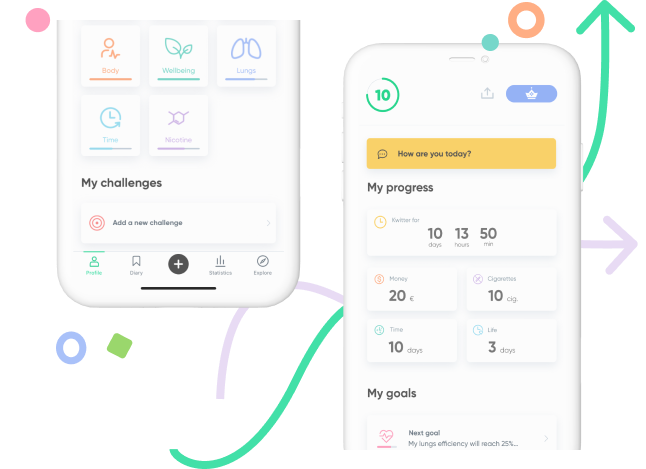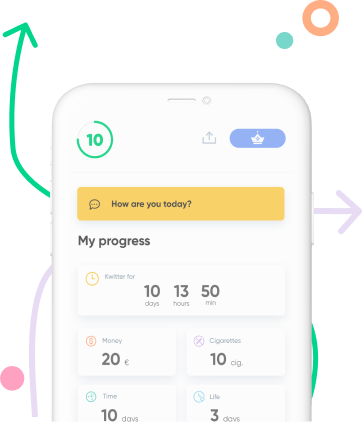April 29, 2019
Tips
How to convince your parents to quit smoking
It is not unusual to hear children say to their parents: "Mom or Dad (sometimes to both of them), please stop smoking, it is not good for you". In this article, you will learn how to convince them.
It is not unusual to hear children say to their parents: "Mom or Dad (sometimes to both of them), please stop smoking, it's not good for you". Teenagers or adults who see their parents drinking or smoking share the same concerns. They feel very sorry to see them destroy their health. Nowadays, young people are much more aware and informed of the harmful effects of tobacco, unlike some adults. However, they wonder: how can they do something for them? How can they help them to quit smoking cigarettes? Here, we give you some tips that might help you convince them.
Understand their addiction
To fully understand the tobacco addiction it is essential to go further from the idea that we can commonly have on the issue. It is important not to underestimate this bad habit and the difficulty of getting rid of it. Also, it is crucial to be well informed and also well documented. Look for information on the websites that are devoted to tobacco addiction, such as Kwit. Understand that smoking is a physical and psychological addiction that makes people terribly dependent. Then, it is necessary to know the different ways of helping and supporting those who decide to quit smoking.
Finally, it is necessary to understand when and why your parents started smoking. Keep in mind that several years ago, movie stars, male or female, often were featured in movies with cigarettes in their mouths. Sometimes as a sign of masculinity or sexiness! And we all know the power of mimicry.
Adopt the right attitude
To go further than saying "Stop smoking!", it is absolutely fundamental to think and adopt the right attitude to discuss this issue with your parents. This should be done without prejudice, without "lecturing" but rather with empathy, understanding and kindness.
Two cases can be identified. The first and easiest is the case in which parents talk about the fact that it would be nice to quit smoking one day because they are aware of the dangers that might come from this, not only for themselves but also for their families and friends. In this situation, it is necessary to encourage them to do so and to help them during the process.
The second case is much more complicated, the parents are far from considering quitting smoking. Therefore, it will be necessary to persuade them to stop, convince them to do so and help them in the withdrawal process.
In both cases, let them know about the services and means of support. Remember, in the event of temporary relapses, never criticise their failures and downplay the difficulties they are experiencing.

Kwitter's tips
Help them discover the Kwit; present them the app as a fun tool to help them quit smoking. Kwit is playful for every generation! Carefully discuss the fact that second-hand smoke at home has an impact on the health of the rest of the family. This while avoiding using a tone that might make your parents feel guilty.
Refer to relatives of friends who have decided, after many years of smoking, to quit and show them that their health is much better now. On the contrary, avoid talking about a friend affected by the admission of one of his parents to hospital following lung cancer or cardiovascular disease caused by tobacco.
Finally, insist that it is never too late to quit smoking. It must be clear that the decision to quit smoking is up to them. Being respectful of your parents is a guarantee of success in the withdrawal process. Eventually, what once was a problem will turn into a way of strengthening family ties.




